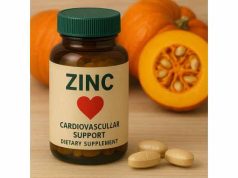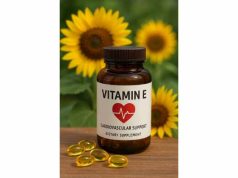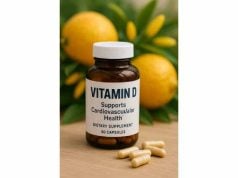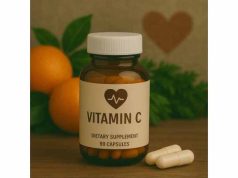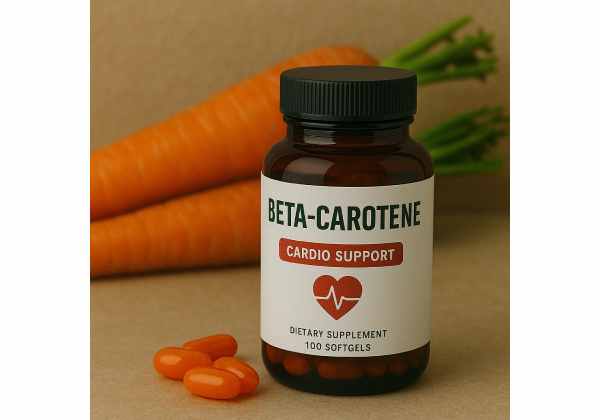
Beta-carotene is a powerful antioxidant and a precursor to vitamin A, widely acclaimed for its potential to help maintain heart health and support overall cardiovascular function. In an era where heart disease remains a leading cause of illness worldwide, harnessing beta-carotene’s protective role may be an essential step toward a healthier circulatory system. This comprehensive article delves into the essentials of beta-carotene—from how it works in the body to its scientifically investigated benefits for vascular well-being. Read on to discover how this nutrient can complement your daily regimen, possibly helping stave off cardiovascular disorders and promoting more robust heart health.
Table of Contents
Table of Contents
- Beta-Carotene: Key Nutrient Overview
- Mechanisms and Biological Functions
- Scientifically Backed Heart-Support Advantages
- Guidelines on Dosing, Application, and Cautions
- Frequently Asked Questions
- References and Sources
Beta-Carotene: Key Nutrient Overview
Beta-carotene is a naturally occurring pigment, most commonly recognized for giving carrots, sweet potatoes, and other vibrant fruits and vegetables their distinctive orange hue. Structurally, it belongs to the carotenoid family—a class of over 600 plant pigments, each with varying roles and health implications. Beta-carotene is of particular interest because the human body can efficiently convert it to vitamin A, an essential micronutrient for vision, immune support, and more.
Rich Food Sources
Although carrots often take center stage as the primary source of beta-carotene, a variety of other fruits and vegetables also supply generous amounts of this beneficial compound:
- Carrots: One of the richest dietary sources of beta-carotene.
- Sweet Potatoes: A single medium-sized sweet potato can provide a significant portion of daily beta-carotene needs.
- Pumpkins: Their bright orange flesh indicates a high concentration of carotenoids, beta-carotene chief among them.
- Apricots: These fruits contain a notable quantity of beta-carotene, adding a sweet boost to your intake.
- Spinach and Kale: Dark leafy greens offer beta-carotene as well, albeit less visibly because chlorophyll typically masks the orange pigment.
By incorporating a wide spectrum of vegetables and fruits into your diet, you can naturally boost your intake of beta-carotene and associated phytonutrients. This approach contributes to a heart-friendly nutritional routine, providing antioxidant defenses that may help sustain cardiovascular integrity.
Carotenoid Family and Synergy
Carotenoids often work best in synergy with other dietary compounds. While beta-carotene has garnered most of the public’s attention, it is only one player among several carotenoids—such as alpha-carotene, lutein, and lycopene. Each of these pigments boasts its unique contribution to health. For instance, lutein is vital for eye health, while lycopene is closely associated with prostate health and vascular support. Together, carotenoids frequently amplify each other’s beneficial effects, highlighting the value of a balanced diet with varied fruits and vegetables. This synergy underscores why a diverse intake is vital: consuming multiple forms of carotenoids can broaden your antioxidant defense, particularly regarding the inflammatory pathways implicated in heart disease.
Historical and Cultural Use
Beta-carotene’s prevalence dates back to ancient cultures, long before it was identified by modern scientific methods:
- Ancient Civilizations: Records suggest that brightly colored foods—including those brimming with beta-carotene—were prized for their perceived ability to build bodily strength and resilience.
- Traditional Medicinal Practices: Systems like Traditional Chinese Medicine and Ayurveda used colored herbs and vegetables, sometimes linking them to specific organs. Bright orange or red vegetables were often thought to invigorate the blood and enhance vitality.
Although these ancestral beliefs do not necessarily align perfectly with current scientific standards, they highlight a time-tested acknowledgment of the potential benefits of nutrient-dense foods. Over centuries, many of these ancient understandings—once steeped in folklore—have intersected with modern science, revealing that some of these intuitive traditions were surprisingly apt in attributing certain benefits to carotenoid-rich produce.
Beta-Carotene for Heart Health: The Modern Perspective
In contemporary health circles, beta-carotene has attracted attention for its potential role in preventing cardiovascular-related conditions. Early research emphasized the vitamin A activity of beta-carotene, demonstrating its importance for vision and immune support. However, new studies suggest that these colorful compounds may also extend protective actions to the heart and blood vessels.
Certain cardiologists and nutrition experts now examine the possibility that a diet packed with carotenoids could help maintain normal blood pressure, strengthen arterial walls, and reduce the oxidative stress often associated with atherosclerosis. While it is still vital to underscore that beta-carotene is not a stand-alone cure, it can work as part of a multi-faceted preventive strategy that includes balanced nutrition, physical activity, and routine health checkups.
Beta-Carotene for Heart Health vs. Synthetic Sources
Not all beta-carotene sources are created equal. While whole-food consumption of beta-carotene is generally considered beneficial, certain synthetic supplements have sparked debates within the scientific community. Observational studies typically show that diets high in carotenoid-rich vegetables correlate with reduced risk of cardiovascular complications. However, some studies employing synthetic beta-carotene supplements note inconclusive or mixed results. This discrepancy may stem from the lack of synergy with other nutritional co-factors found in whole foods.
Still, many reputable supplement manufacturers adhere to strict quality standards and often derive beta-carotene from natural sources like algae or palm oil, potentially mimicking the broad spectrum of carotenoids found in nature. Choosing a product that maintains this synergy or using a more holistic supplement formula can create a bridge between the convenience of supplementation and the comprehensive benefits of whole-food intake.
Summary of This Nutrient’s Importance
Beta-carotene is more than just a pigment—it is a nutrient that interacts with your body on multiple levels. Beyond its contribution to vitamin A requirements, emerging research links beta-carotene with defenses against oxidative stress, a factor that significantly impacts cardiovascular health. From ancient cultures to modern science, the awareness of its possible advantages has evolved, suggesting that consistent intake of beta-carotene, especially from colorful produce, may be a worthwhile component of a heart-smart diet and lifestyle plan.
Mechanisms and Biological Functions
Understanding how beta-carotene works in the human body sheds light on why it has garnered increasing attention for supporting cardiovascular health. This carotenoid possesses multiple biological actions that intersect with fundamental bodily processes, some of which are particularly relevant for fortifying the heart and circulatory system.
Antioxidant Capacity
Oxidative stress occurs when there is an imbalance between free radicals—unstable molecules capable of causing cellular and tissue damage—and antioxidants, which neutralize these molecules. Free radical damage is associated with a host of chronic diseases, including heart disease. Beta-carotene, like many other carotenoids, has robust antioxidant properties that allow it to quench these free radicals:
- Reactive Oxygen Species (ROS) Reduction: By neutralizing ROS, beta-carotene can help protect lipids and proteins in cell membranes from damage.
- Systemic Inflammation Modulation: Lower levels of oxidative stress typically correlate with reduced inflammatory signals, which is vital for mitigating processes that escalate heart disease risk.
The degree to which beta-carotene can protect tissues also depends on its concentration and bioavailability. Hence, achieving a consistent yet safe intake can be pivotal for maximizing its antioxidant potential.
Precursor to Vitamin A
One of beta-carotene’s hallmark features is its conversion to retinol, an active form of vitamin A, after ingestion. Vitamin A participates in:
- Immune Regulation: Adequate vitamin A levels are crucial for maintaining strong immune defenses, indirectly safeguarding cardiovascular function since systemic infections and chronic inflammation can adversely affect blood vessels and the heart.
- Cell Growth and Differentiation: This includes aspects of tissue repair and maintenance. Proper cellular function is vital for the integrity of vascular linings.
While not all ingested beta-carotene is converted to vitamin A, the body typically regulates this process based on its needs, thus minimizing the risk of vitamin A toxicity from dietary beta-carotene. This built-in mechanism allows beta-carotene to serve as a strategic “reservoir” for vitamin A without dangerously elevating retinol levels.
Cholesterol and Lipid Metabolism
Emerging research suggests that dietary beta-carotene may play a subtle role in optimizing lipid profiles, especially in the context of other healthy lifestyle choices. Although beta-carotene alone is not a magic bullet for high cholesterol, it is part of a broad group of plant compounds often associated with beneficial lipid patterns:
- LDL Oxidation: Low-density lipoprotein (LDL), sometimes referred to as “bad cholesterol,” can become harmful when oxidized, contributing to plaque buildup in arterial walls. The antioxidant role of beta-carotene may help inhibit this oxidative process.
- HDL Support: High-density lipoprotein (HDL), or “good cholesterol,” helps remove cholesterol from arterial walls. Balanced carotenoid intake may, in combination with other factors, support healthier HDL function.
Further studies continue to investigate the precise influence of beta-carotene on lipid metabolism. Yet, its antioxidant and anti-inflammatory effects likely form part of a broader protective framework that aligns with improved heart health.
Influence on Endothelial Health
The endothelium—the inner lining of blood vessels—plays a crucial role in controlling vascular tone, blood flow, and inflammatory responses. Endothelial dysfunction is commonly recognized as an early indicator of atherosclerosis and related heart conditions. Several potential mechanisms point toward beta-carotene’s support for endothelial function:
- Oxidative Defense: By reducing oxidative stress in blood vessels, beta-carotene can help maintain endothelial cells’ normal function.
- Inflammation Mediation: Chronic inflammation can damage the endothelium; beta-carotene’s capacity to alleviate such inflammatory processes indirectly preserves vascular flexibility and health.
- Nitric Oxide Availability: A balanced antioxidant environment may improve nitric oxide bioavailability, assisting in smooth vasodilation and healthy blood pressure levels.
This confluence of antioxidant protection and anti-inflammatory action illustrates why beta-carotene is often grouped with other nutrients that contribute to the longevity and optimal performance of blood vessels.
Synergy with Other Micronutrients
Beta-carotene’s beneficial actions often intensify in the presence of additional vitamins and minerals, such as vitamin E, vitamin C, and selenium. These nutrients can regenerate or bolster beta-carotene’s antioxidant function, making the entire network of antioxidants more resilient. In whole foods, this synergy is built-in; for example, carrots contain beta-carotene alongside other vitamins, including vitamin C. In well-formulated supplements, manufacturers often pair beta-carotene with these complementary cofactors to mimic the dynamic synergy found in nature.
Interplay with Hormonal Health
While beta-carotene is not itself a hormone, vitamin A influences hormone signaling in the body. Adequate vitamin A status can support thyroid function, facilitate healthy steroid hormone production, and promote proper reproductive health. Each of these hormonal systems can have indirect implications for heart health. For example, suboptimal thyroid function can lead to changes in heart rate and blood pressure, thus further accentuating the importance of maintaining balanced levels of vitamin A precursors like beta-carotene.
Takeaway on Mechanisms
Beta-carotene’s effect on heart health is multifaceted, exerting influence through antioxidant action, potential improvements in lipid metabolism, and protective effects on endothelial function. It also supports adequate vitamin A levels and works cooperatively with other nutrients in a complex web of biological interactions. Understanding these mechanisms not only clarifies beta-carotene’s possible benefits for cardiovascular well-being but also underscores why a balanced diet and thoughtful supplementation plan are integral to reaping these benefits.
Scientifically Backed Heart-Support Advantages
Beta-carotene’s array of actions on oxidative stress, inflammation, and cellular health has led researchers to explore its specific effects on cardiovascular well-being. Although ongoing research continues to refine our understanding, multiple studies highlight promising connections between higher beta-carotene intake and markers of better heart health.
Reduced Risk of Coronary Artery Disease
Coronary artery disease (CAD) arises when plaque accumulates in the arteries that supply blood to the heart. Oxidized LDL cholesterol is a significant player in this process, and antioxidants like beta-carotene could combat LDL oxidation. A range of epidemiological studies point to the possibility that individuals who consume diets rich in fruit and vegetables—particularly those high in beta-carotene—often exhibit a lower incidence of CAD. While these studies are correlational, they reinforce the idea that dietary patterns favoring carotenoid intake, in tandem with an otherwise healthy lifestyle, may protect against the arterial blockages that lead to CAD.
Positive Influence on Blood Pressure
High blood pressure, or hypertension, is a widespread cardiovascular risk factor. When sustained over time, high blood pressure can damage arterial walls, accelerate plaque formation, and impose undue strain on the heart. Although beta-carotene alone may not directly reduce blood pressure, its antioxidant properties may help preserve the health of blood vessel linings, enabling them to function more optimally. Additionally, beta-carotene-rich foods often supply other compounds—such as magnesium and potassium—that contribute to healthy blood pressure regulation. As part of a holistic dietary approach, beta-carotene could help maintain the arterial flexibility and balance necessary for normal blood pressure levels.
Strengthening of Cardiac Muscle Cells
Preliminary research indicates that adequate carotenoid consumption might influence cardiac muscle metabolism, particularly under oxidative stress conditions. Animal studies have noted that higher carotenoid levels help protect heart muscle cells from damage, potentially enhancing cell survival rates and overall cardiac function. While human studies on direct myocardial protection from beta-carotene are more limited, these exploratory findings offer a rationale for ensuring that your diet or supplement routine is not deficient in carotenoids, especially under conditions of heightened stress or recovery.
Synergistic Role in Combating Inflammation
Chronic inflammation frequently operates behind the scenes of cardiovascular illness, contributing to the development of atherosclerosis and other vascular irregularities. By mitigating oxidative stress, beta-carotene may help reduce the generation of inflammatory molecules. For instance, some studies show that individuals with low carotenoid intake often have elevated markers like C-reactive protein (CRP), a key indicator of systemic inflammation. While inflammation is complex and influenced by numerous lifestyle factors—such as smoking, exercise, and stress management—incorporating carotenoid-rich foods can be a meaningful step toward a more anti-inflammatory profile.
Contribution to Optimal HDL-to-LDL Ratios
The balance between HDL (“good” cholesterol) and LDL (“bad” cholesterol) is crucial for overall heart health. While diet and exercise remain the central strategies for optimizing these lipid fractions, antioxidants like beta-carotene may offer additional support. By protecting LDL from oxidation, beta-carotene could reduce one driver of plaque formation. Meanwhile, some research suggests that a nutrient-dense diet correlates with higher HDL levels, potentially reinforcing the importance of diverse carotenoid intake. Although the direct effect on HDL-to-LDL ratios might be modest, every incremental improvement in lipid profiles can add to a larger, heart-protective strategy.
Emerging Research on Vascular Elasticity
Vascular elasticity, or the ability of blood vessels to expand and contract appropriately, is a critical determinant of cardiovascular health. Stiff arteries often lead to elevated blood pressure and increased strain on the heart. Preliminary findings point toward a beneficial link between carotenoid-rich diets and arterial elasticity, though larger-scale, long-term studies are needed to establish definitive conclusions. Since reduced arterial stiffness typically correlates with better outcomes, the potential for beta-carotene to help preserve or improve this elasticity is an intriguing avenue of investigation. This area underscores the ongoing need to understand how various antioxidants interact with vascular walls at a cellular and molecular level.
Population Studies and Meta-Analyses
Over the past few decades, large-scale population studies and meta-analyses have tried to parse out the relationships between specific nutrients—like beta-carotene—and heart disease risk. Overall, these analyses tend to affirm that diets high in beta-carotene correlate with better cardiovascular outcomes. However, results can vary depending on whether beta-carotene is consumed in isolation as a supplement or alongside other nutrients in whole foods. The majority of data supports the idea that beta-carotene works most effectively when part of a broader range of antioxidants and phytonutrients, further highlighting the value of a balanced, colorful diet.
Incorporating Beta-Carotene for Vascular Support
A comprehensive strategy for heart health goes beyond any single nutrient. Nevertheless, by prioritizing diets or supplements that include beta-carotene, you potentially reinforce your body’s natural defenses against oxidative damage and inflammation—two critical elements in the development of heart disease. Whether you are looking to optimize general wellness or specifically aiming to reduce your cardiovascular risk profile, consider the following steps:
- Eat the Rainbow: Emphasize a variety of produce, paying particular attention to orange, yellow, and dark leafy green vegetables.
- Mind Your Cooking Methods: While certain cooking methods can increase beta-carotene availability—such as lightly steaming carrots—others may degrade nutrients if carried out at very high temperatures for prolonged periods.
- Balanced Supplementation: If opting for a supplement, select products made from natural sources of beta-carotene and ensure it is paired with complementary nutrients to mimic the synergy found in whole foods.
Closing Thoughts on Evidence-Based Benefits
Research so far underscores a supportive role for beta-carotene in maintaining various aspects of heart health. From potentially lowering the risk of coronary artery disease to aiding in blood pressure management, beta-carotene’s antioxidant and anti-inflammatory actions can be integral to a multi-pronged approach that includes a balanced diet, regular exercise, and adequate rest. As the science evolves, beta-carotene remains a compelling subject in the landscape of cardiovascular well-being—one that may hold even more insights into how we can protect and strengthen our hearts for the long term.
Guidelines on Dosing, Application, and Cautions
Beta-carotene is widely recognized as a relatively safe nutrient, especially when consumed in moderation through whole foods. However, as with any dietary supplement, it is crucial to understand the recommended dosages, potential interactions, and necessary precautions to get the most benefit without adverse effects.
Recommended Intake Levels
The recommended daily intake of beta-carotene often aligns with general guidance for vitamin A. Although beta-carotene is converted to vitamin A in the body, its conversion rate is not 1:1. Instead, the body typically transforms beta-carotene into vitamin A only as needed. Some general guidelines include:
- Dietary Reference Intake (DRI): There is no official DRI specifically for beta-carotene, but adult men generally need about 900 mcg of retinol activity equivalents (RAE) of vitamin A per day, while adult women need about 700 mcg RAE. Since beta-carotene conversion varies, aiming for a few milligrams of beta-carotene daily via food can support these needs.
- Supplemental Dosage Ranges: Over-the-counter supplements may range from 2,500 IU (International Units) to 25,000 IU of beta-carotene. Most health experts caution against the higher end for extended periods unless under medical supervision.
When relying on foods, it can be easier to ensure you do not exceed safe intake levels. In supplement form, always follow the product label and consult a healthcare professional if unsure.
Best Practices for Absorption
Beta-carotene is fat-soluble, meaning dietary fat enhances its absorption. Implementing these strategies can help optimize its bioavailability:
- Pair with Healthy Fats: Include a drizzle of olive oil or a small serving of avocado with beta-carotene-rich foods like carrots or sweet potatoes.
- Light Cooking: Gently steaming or sautéing beta-carotene-rich vegetables can improve bioavailability. Overcooking, however, may degrade some nutrients.
- Balanced Meals: Consuming beta-carotene in a meal containing protein and various vitamins can further support efficient absorption and utilization.
Potential Interactions
While beta-carotene is often considered mild, certain conditions or medications may interact with high doses:
- Smokers and Lung Disease Patients: Some studies suggest that heavy smokers taking high-dose beta-carotene supplements (specifically 20 mg or more daily) could experience an increased risk of lung cancer. Most experts recommend dietary sources over high-dose supplements for smokers.
- Medications Affecting Vitamin A: Drugs like isotretinoin for acne may necessitate caution with additional beta-carotene intake.
- Other Antioxidants: If you are taking multiple antioxidant supplements (e.g., vitamin C, vitamin E), keep an eye on cumulative doses. Over-supplementation can sometimes lead to imbalances.
Consulting with a healthcare provider can help in identifying potential interactions specific to your health profile and medication regimen.
Signs of Excessive Intake
One of the hallmark signs of excessive beta-carotene consumption is carotenemia, a condition in which the skin takes on an orange or yellowish hue, especially noticeable on the palms and soles. While generally harmless and reversible once intake is reduced, it does signal that your beta-carotene consumption may be surpassing what your body requires.
Unlike retinol (preformed vitamin A), beta-carotene does not typically lead to vitamin A toxicity. However, extremely high supplement doses over prolonged periods can pose other risks, especially if combined with inadequate medical oversight. Moderation and a consultative approach with a healthcare professional are key.
Who May Benefit Most
Individuals who have limited fruit and vegetable consumption due to dietary restrictions, allergies, or lifestyle challenges might look to beta-carotene supplements to address potential gaps. Additionally, those aiming to enhance overall heart health may find a targeted beta-carotene supplement helpful in conjunction with other micronutrients.
- Vegetarians and Vegans: With no direct intake of retinol (found in animal products), these populations may rely heavily on beta-carotene for vitamin A.
- Older Adults: With aging, the body’s efficiency in converting beta-carotene to vitamin A can change. Personalized recommendations might be necessary to maintain optimal levels.
- Individuals Under High Oxidative Stress: People exposed to high levels of environmental toxins or those dealing with chronic inflammatory conditions may experience additional benefits from the antioxidant properties of beta-carotene.
Usage Recommendations
- Cycle Supplements: Some health experts advise periodic breaks if you’re taking higher doses of beta-carotene.
- Quality Counts: If using supplements, prioritize brands that use natural carotenoid sources and have third-party quality certifications.
- Lifestyle Integration: Beta-carotene can support heart health most effectively when combined with a balanced diet, regular exercise, and stress management techniques.
Safety Recap
In moderate doses, beta-carotene is safe for most healthy individuals. Its robust safety profile, especially in dietary form, underscores its popularity as a nutritional supplement. However, like all nutrients, it should be viewed through the lens of an overall health strategy—one that respects individual biochemical needs, medication interactions, and the significance of healthy lifestyle habits.
Frequently Asked Questions
Can beta-carotene for heart health replace other cardiovascular medications?
No. Beta-carotene for heart health is not a substitute for prescribed medications. While it may support vascular function, always follow your doctor’s treatment plan, especially if you have existing cardiovascular conditions or are on medication to manage heart-related issues.
Does beta-carotene help cardiovascular function in smokers?
Smokers or individuals exposed to heavy air pollution should exercise caution with high-dose beta-carotene supplements. Certain studies associate high-dose supplements with increased lung risk in smokers. Consult a healthcare provider before starting any regimen.
How does beta-carotene help cardiovascular function in comparison to synthetic vitamin A?
Beta-carotene is a precursor to vitamin A, allowing the body to convert only what it needs. Synthetic vitamin A (retinol) poses a higher risk of toxicity. Beta-carotene’s conversion process generally prevents excessive vitamin A levels, making it a potentially safer option.
Is beta-carotene benefits for heart health backed by scientific research?
Yes. Many studies highlight beta-carotene’s antioxidant role, association with reduced inflammation, and potential benefits for heart health. However, it works best within a balanced diet and healthy lifestyle rather than as a sole intervention.
What dosage of beta-carotene helps cardiovascular function?
A specific one-size-fits-all dose does not exist. Most individuals meet their needs through a diet rich in brightly colored vegetables. If opting for supplements, typical dosages vary between 2,500 IU and 25,000 IU, but consult your healthcare provider for personalized recommendations.
References and Sources
- Krinsky NI & Johnson EJ. (2005). Carotenoid actions and their relation to health and disease. Molecular Aspects of Medicine, 26(6), 459–516.
- Bendich A & Shapiro SS. (1986). Effect of beta-carotene and canthaxanthin on the immune responses of rabits. The American Journal of Clinical Nutrition, 44(1), 91–98.
- Hozawa A, Jacobs DR Jr, Steffes MW, et al. (2006). Associations of serum carotenoid concentrations with the development of diabetes and with insulin concentration: interaction with smoking: The Coronary Artery Risk Development in Young Adults (CARDIA) Study. American Journal of Epidemiology, 163(7), 563–571.
- Li Y, Pan A, Wang DD, et al. (2016). Impact of healthy lifestyle factors on life expectancies in the US population. Circulation, 138(4), 345–355.
- Omenn GS, Goodman GE, Thornquist MD, et al. (1996). Effects of a combination of beta carotene and vitamin A on lung cancer and cardiovascular disease. New England Journal of Medicine, 334(18), 1150–1155.
- Rao AV & Rao LG. (2007). Carotenoids and human health. Pharmacological Research, 55(3), 207–216.
- Tanaka T, Shnimizu M, Moriwaki H. (2012). Cancer chemoprevention by carotenoids. Molecules, 17(3), 3202–3242.
- European Food Safety Authority (EFSA). (2012). Scientific opinion on the re-evaluation of beta-carotene (E160a) as a food additive. EFSA Journal, 10(3), 2593.
Disclaimer:
This article is intended for informational and educational purposes only. It is not a substitute for professional medical advice, diagnosis, or treatment. Always consult a qualified healthcare provider for personalized guidance regarding any medical condition or dietary supplement regimen.
Please feel free to share this article on Facebook, X (formerly Twitter), or any platform you prefer. Follow us on social media for more insights on health, wellness, and nutritional supplements!

